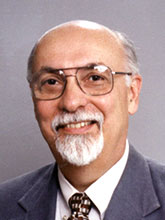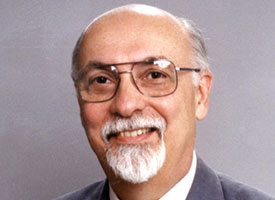With Dr. Bruce Hartung
Responding to previous columns, a spate of communications from readers has taken up the issue of accountability of pastors. In many cases, these communications have been expressions of pain, bewilderment, upset and an

ger. Their common “theme” suggests a lack of pastors being on the same page with congregational leaders and their understanding of the need for pastoral care — to put the issue as gently as I can. Here are two examples:
I read with interest in the February 2013 issue [click here] the last reader’s comment
regarding congregations having no “right” to fire their pastor. I would agree with this in most instances. However, what is a congregation supposed to do when the pastor is
clearly not fulfilling his call duties equally to all members, [when a] leader’s talks with him are not changing the situation and [when] membership is dwindling as a result? It seems to me the congregation should have some recourse in extreme cases. As it is now, the “deck is stacked” for the pastor [and] against the congregation.
In November’s Lutheran Witness, Rev. Harrison clearly listed the three issues every good pastor should be addressing. These are [to] (1) preach a decent sermon, (2) love and visit your people and pray for them and (3) be visible in the community. Our pastor … has ignored all of these issues. … I implore the Church to be looking at “accountability.” The entire Lutheran church is declining and the church leaders should be exploring ways to improve the quality of their organization and the products of their seminary.
And following is a third example that is a direct challenge to me. It is a follow-up to a previous communication identifying items such as those identified by other readers. But it also is based on a series of needs for pastoral care that went unfulfilled, from the reader’s point of view.
I believe that I have read the last article of yours in “Pressure Points” that I care to read, as you fail to recognize that there are times when a minister has consciously chosen [not] to carry out the call documents; and, that congregations do have a right to hold the pastor accountable. … I cannot for the life of me believe that the examples that I have submitted to you previously go unmentioned, thus verifying to me that the Synod perhaps really does not care or is embarrassed by the fact that a pastor would do such a thing and will try to sweep it under the rug. … There has to be some accountability amongst yourselves. If you continue to close your eyes to the members of the congregation that are in pain and not being ministered to, you fail your call duties to God … plain and simple.
There are many things in common among these three examples and many other reader comments that identify this kind of concern. But three stand out: (1) there is great pain, (2) there are attempts at conversation that do not lead to reconciliation and change, and (3) there is an impasse and a sense of not knowing what to do next. Locked in a polarizing conflict, sides are taken and emotional cutoff is the norm.
Would that there could be prayerful conversations among polarized folks, wherein the first task is to more fully understand the concerns of the other and the second task is to be open and vulnerable to change.
Openness to feedback is an essential skill. At times, hearing feedback makes us feel uneasy. But it is necessary that we all do hear feedback. In relationships, it is more than hearing; it also is acting constructively on the feedback.
So, I’ve opened our “closed eyes” to the issue and will take it up in at least one more column. Additional reader comments are welcomed. Especially important is how concerns like these have been resolved constructively. These kinds of polarized impasses do great spiritual and psychological damage. We do need to find ways for mutual accountability in the Church that is Christ’s body.
The Rev. Bruce M. Hartung, Ph.D., is professor of Practical Theology and directs the M.Div. and Alternate Route programs at Concordia Seminary, St. Louis. He can be reached at hartungb@csl.edu.
